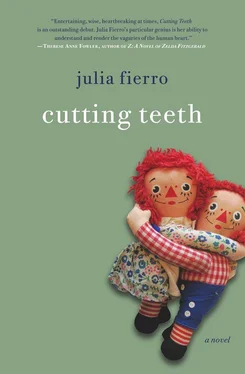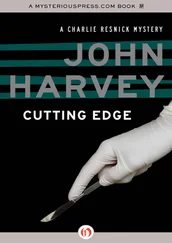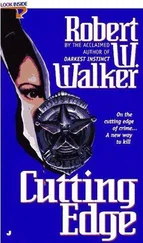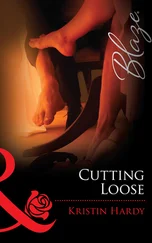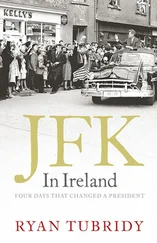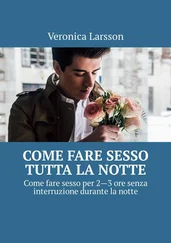With every excruciating minute, Rip’s anger at Michael escalated. Was now approaching fury. The panicked pace of his thoughts in time with the cicadas’ throbbing techno song. He hadn’t done anything to Michael. He’d simply let his guard down and asked him a sensitive question. Big fucking deal. Clearly, he’d misjudged Michael. Thought they were some sort of kindred spirits. Now, Rip sorely regretted opening his mouth. He issued a telepathic apology to Grace for disclosing so personal an issue to this asshole. He hoped to God, Michael, who now seemed shockingly unstable, didn’t say anything to Grace.
When Hank woke, they had traveled only half the distance to the mouth of the estuary. Hank peered through eyes swollen with tears, saw the night sky, and let his head drop back. His wails echoed against the trees.
“Stop crying, Hank!” Harper yelled although Rip could see that she, too, was on the verge of weeping.
“Harper,” Rip said. “Leave Hank alone. Can’t you see he’s sad?”
“Hank’s always sad,” she said.
“That is not a nice thing to say,” Rip said.
“Don’t talk to her like that,” Michael said without turning.
“Look,” Rip started, daring to stick up for himself. If not for himself, then for his son. “I’m just reinforcing the rules that all the other mommies…”
“Listen to yourself, man,” Michael said, turning to look at him over a sweat-soaked sleeve. “Calling yourself a mommy.”
“I’m more of an M-O-M-M-Y,” Rip said as he stood, “than you’ll ever be a D-A-D-D-Y.”
“I thought he wasn’t even Y-O-U-R-S,” Michael said coolly as he unfolded himself to stand.
I thought Tiffany was your fiancée, Rip wanted to say. But then, she really wants to fuck me, so maybe you guys aren’t so exclusive?
But he said nothing. The canoe shimmied hard to one side beneath him, and he put his arms out to balance.
A few minutes later, something changed. Maybe the current switched, or the wind changed direction. Rip tried to think back to science classes he’d taken long ago. One minute, they were pushing against a wall, and the next, their paddles cut cleanly through the water and stroked effortlessly, pushing the boat forward in one smooth movement.
In less than fifteen minutes, Nicole’s family beach house appeared on the shoreline, and Rip could have wept with gratitude. As he lifted a half-asleep, mosquito-bite-covered Hank from the boat, he noticed fireflies poking bright holes in the dark woods along the shore.
“Look, buddy,” he said to Hank, pointing to the trees. “Over there. Fireflies.”
“Cool!” Hank said, suddenly wide-awake. “You know, they were here even before dinosaurs.”
“That’s right, my little man.”
“It’s like they’re teeny tiny magic fairies,” Hank singsonged in that once-upon-a-time tone Rip knew the boy loved.
Rip took his son’s hand and guided him up the path toward the deck. Michael and Harper followed a few paces behind.
Hank turned to Harper. “Hah-per. I’ll be the sleeping princess. And you be the prince. Okay?”
“No, I’m the princess,” Harper said.
Michael cleared his throat, and Rip knew instantly that the man’s ahem was mocking Rip, was mocking his son.
“No, me,” Hank said. “I’m the princess.”
Rip heard the tremor of tears under his son’s proclamation.
Harper began, “Boys can’t be…”
Rip interrupted her. “Harper,” he warned with a new severity in his tone.
No more Mama Rip, diaper-changer, boo-boo-kisser, nose-wiper, playground pal. And, he thought, pushover.
“You can’t be the princess every time,” Rip said. “You have to take turns.”
eat your heart out: Tiffany
Tiffany had lovedher mother’s white leather dress.
“Zip me, baby,” her mother had said as she had tugged the dress on over her black push-up bra, and Tiffany, just eight years old, had stood on tiptoes to make the zipper glide right to the top.
“I could pass for your sister in this.” Her mother turned her padded shoulders and smoothed the leather that clung to her hips as she examined herself in the mirror. “Don’t you think, Tiff?”
“Totally,” Tiffany said because she knew that was what her mother wanted to hear.
“It’s going to be a good night,” her mother said with a deep and hopeful exhale.
Tiffany’s mother always left the house looking perfect on a first date. Not a crease in her dress. Not a scuff on her matching white pumps. Not a crimp in her blown-out and hairspray-stiffened hair. She smelled of Jean Naté body wash and Chloé perfume. Tiffany could still taste the mint on her mother’s lips as she kissed her good night, before her mother climbed into whatever pickup truck, Bronco, or Trans Am her date was driving.
When Tiffany’s father came home after two years in the service and set up a mechanic’s garage in the front yard of their small house in their small town on the North Fork of Long Island, he’d gotten himself a new girlfriend, a waitress from the BBQ place on Main Street who lined her lips with brown pencil and who he took out around town.
“So that every goddamn pair of eyes on the North Fork sees them,” Tiffany’s mother complained.
One Friday afternoon, when Tiffany, a fourth grader, had come home from school, her mother was gone. Her father’s explanation was “she run out on us,” and Tiffany had no choice but to believe him and guess that her mother had taken the white leather dress with her. Tiffany only saw her a few times a year after that — on holidays, on her birthday. She never saw the white leather dress again.
Now, as Tiffany looked into the dusty mirror of Nicole’s parents’ guest bedroom and tweezed a rogue hair from her eyebrow, she could still smell that leather. How silly she’d been, she thought, believing that damn dress the be-all and end-all, when it was the tackiest thing on earth.
She thought of Rip, whom she’d been trying not to think of, still not sure what he made (or she made, for that matter) of the scene in the kitchen the day before. She couldn’t tell if he’d been avoiding her all day, or if it was just the routine chaos of the kids, and so many people, then Susanna — Tiffany had to stop from laughing — puking on the beach, plus Nicole’s fretting and Michael’s drinking too much.
Rip wouldn’t mind seeing her in that white leather dress. That she knew.
She froze, listening, the tweezers poised in midair. She had thought she heard Harper’s giggle out on the beach. Like chimes in the breeze. They sure had been gone long enough, she thought with a tingle of worry. She knocked back the rest of the wine, and it slid warm and spicy down her throat.
She dabbed golden droplets of Rodin face oil on her chin, her cheeks, and her forehead with a tiny glass wand. It cost $150 an ounce, which she had charged to her secret MasterCard. Worth every penny.
After applying primer, foundation, powder, blush, and eye makeup — the steps necessary in creating a dewy, natural-looking complexion — she painted her lips with Tom Ford’s Cherry Lush, $45 a tube, a birthday gift from old Suzie Harcourt, Tiffany’s own former good employer. Years ago, when Tiffany had stepped off the Greyhound bus for the second time — her first stab at NYC life having been a failure — and into the grime-coated Port Authority, a twenty-two-year-old worth less than $200, she’d been struck lucky, hired by society semidiva Suzie Harcourt, nee Vanderly, whose twins Tiffany would nanny on the Upper East Side until Harper was born. Suzie taught Tiffany all she’d need to know to blend in with women several tax brackets above the couples who filled the beach house that weekend. Suzie had taught her to be a class chameleon, and Tiffany had learned that florals and plaids could go together if you had enough blue blood flowing through your veins, that straight hair vs. curly spoke of refinement, and that anything frosted, bleached, or acid-washed was out of the question, a blinking red sign you were trash.
Читать дальше
